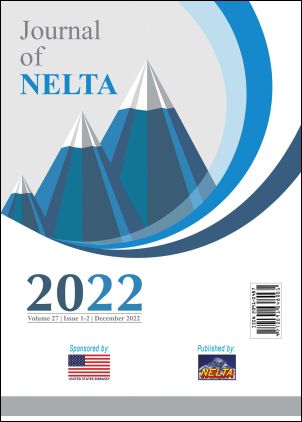World Englishes, Monolingual Bias, and Standardized Tests in a Multilingual World: Ideologies, Practices, and the Missing Link
DOI:
https://doi.org/10.3126/nelta.v27i1-2.53197Keywords:
multilingualism, linguistic diversity, World Englishes, standardized language tests;, language ideologies, language biasAbstract
As English continues to spread as an international lingua franca, there is a growing diversity in its use around the world. As a result, there are calls for embracing the diversity in the teaching, learning and assessment of the language. At the same time, there is a growing criticism against the widely taken language tests such as the Test of English as a Foreign Language (TOEFL) and The International English Language Testing System (IELTS) for being guided by the pervasive ideology of monolingual native speakerism and devaluing the multilingual speakers and the multiple varieties of Englishers. Against this backdrop, this conceptual paper focuses on the influence of the World Englishes movement on these so-called standardized tests and critically examines how the existing assessment practices fail to represent the multilingual repertoires and actual language practices of the diverse range of test-takers around the world. Based on the critical analysis of relevant literature on World Englishes, the paper highlights the progress, challenges and possibilities for incorporation of more diverse models of language tests in a translingual world that we live in today.
Downloads
Downloads
Published
How to Cite
Issue
Section
License
© Nepal English Language Teachers’ Association (NELTA)
Authors are required to transfer their copyright to the Nepal English Language Teachers' Association (NELTA)
The Journal of NELTA is copyright by Nepal English Language Teachers’ Association (NELTA). Apart from citing/referencing in academic works, no part of any materials may be reproduced by any process without prior written permission from its copyright owner – NELTA. Requests and enquiries concerning reproduction and rights may be addressed to NELTA or the editorial board at neltaeditorialboard@gmail.com.




